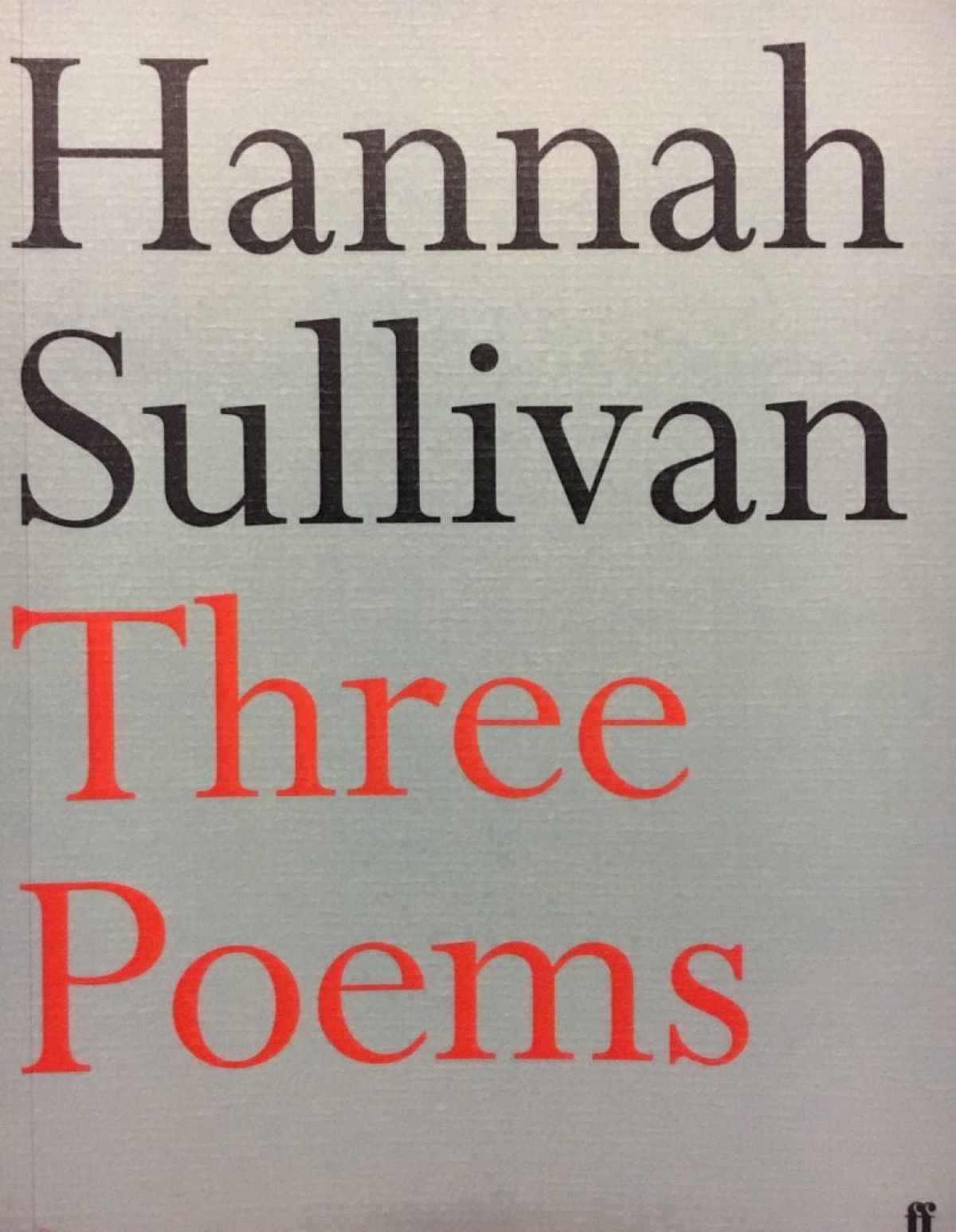Review: Faber New Poets

I hadn’t previously heard of any of the Faber New Poets (Zaffar Kunail, Sophie Collins, Richard Scott, and Hannah Sullivan) performing at the Anthony Burgess Foundation as part of Manchester Literature Festival. But once the event was finished, I knew for sure that I’d be hearing (and reading) much more from them in years to come.
The poets were introduced by John McAuliffe (co-director of Manchester’s Centre for New Writing) who described 2018 as a “stand out year for debut poets”. Kunail, Scott and Sullivan (Sophie Williams sadly couldn’t make it) have all released their debut collections this year and are testament to the fact that the millennial poetry scene is thriving.
First up was Richard Scott, reading from his “wild and controlled” debut, Soho. He began with the opening sonnet in Soho, where the speaker writes in the margins of the poem they are reading. Seeing Scott talk about a past of scribbling in margins to taking centre stage and performing was a joy to watch. He was a natural performer and his carefully wrought poems sounded like music in his softly-spoken voice.
Scott talked a little about growing up under Section 28, and how it felt to be a queer reader in a time of censorship. When he was younger, he realised that you could in fact find “a queer subtext” in the work of poets like Gerard Manley Hopkins.
He described that in writing Soho, he was attempting to “unearth some kind of queer ancestry”. Finding a queer poetic lineage, was hard for Scott— he wasn’t just interested in a lineage of trauma. This need to find himself in words led to him looking to “Soho; a place of otherness, sexuality and queerness”.
Scott’s poems were as tender as they were erotic, as intellectual as they were heartfelt. His debut is the result of feeling a lack of queer representation in poetry but may well stand as a key touchstone to a future generation of poets.
Zaffar Kunail read next, from his collection, Us. Kunail is interested in how “language names us and shapes us”, he manages to compress “big subjects into small words”. With pin point precision, he draws out large conclusions from small subject matter. McAuliffe likened Kunail to Seamus Heaney and Paul Muldoon — high praise indeed, but well-earned.
Kunail told us about how he used to stutter as a child, and how constantly having to think a word or two ahead in a sentence has shaped his understanding of language. His poetry certainly reflects this, every word is chosen with the utmost precision, every line break has clearly been thought through and earned its place.
My favourite poem of Kunail’s was Spark Hill. Based on a childhood memory where Kunail was forced rather unwillingly into a fight, it was subtle but affecting when read aloud. For anyone interested in poetry where language itself is the subject, Zaffar Kunail’s Us is a must.
Hannah Sullivan was the last to read and for the first time ever, she read her 12 page poem, You, Very Young in New York. After Scott and Kunail’s shorter pieces, Sullivan’s reading was almost hypnotic. Her care for language was obvious from the almost musical reading; I even found myself tapping along to the beat of her speaking.
The poem follows a hedonistic, alcohol-fuelled journey through New York taking place both over the course of one day and a whole year. It’s experimental in its concept but the imagery is vivid enough that it was easy to follow along as she read.
Sullivan signposted the various quotes from Joan Didion, Theodor Adorno, Henry James, and F. Scott Fitzgerald that create an intertextual patchwork throughout the poem. Sullivan, who received a PhD from Harvard and currently teaches at Oxford is definitely a scholarly writer.
But this shouldn’t turn people away from her work — her poems will force you to think ‘yes’, but there is no intellectual barrier to stop you enjoying them. While I haven’t read a lot of the stuff she quoted, I certainly enjoyed her book, Three Poems. And where she is scholarly, Three Poems is similar in many ways to T. S. Eliot’s Four Quartets; she is new and refreshing.
From Richard Scott’s exploration of queer desire and Zaffar Kunail’s experiments with language to Hannah Sullivan’s reimagining of the coming of age narrative, it’s clear that this year’s Faber New Poets are worth watching. In a year full of brilliant debuts, they’ve set themselves apart as uniquely equipped to write about our current times.







